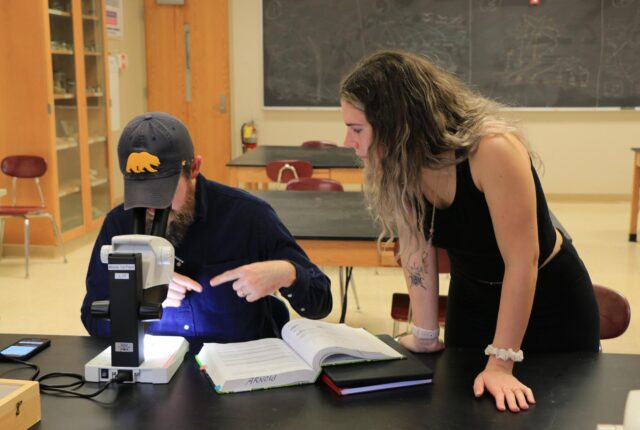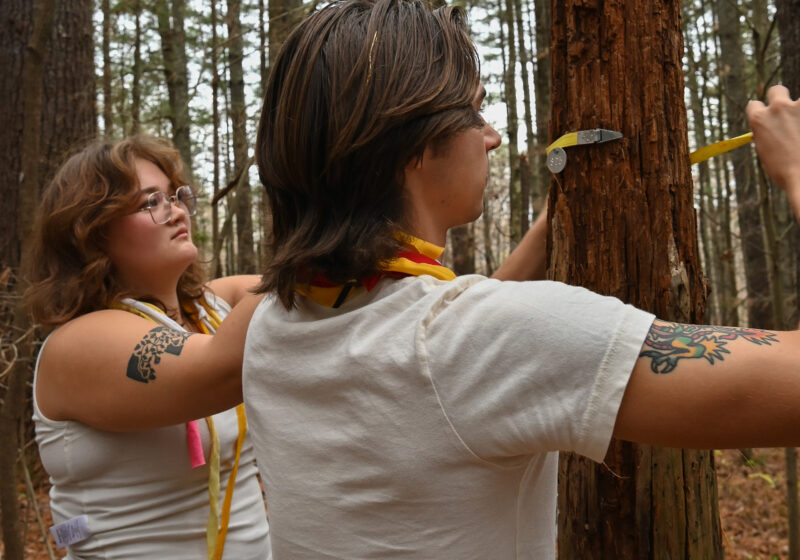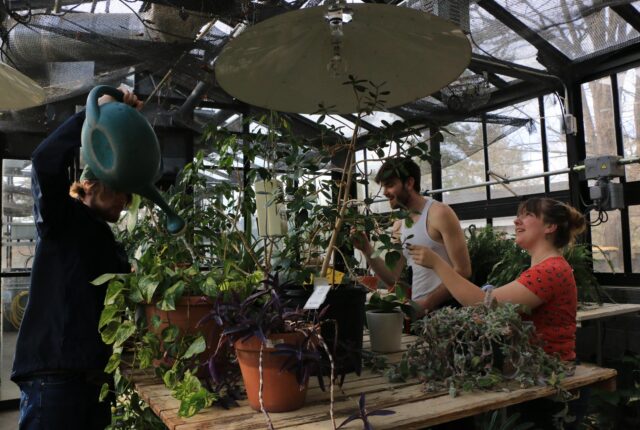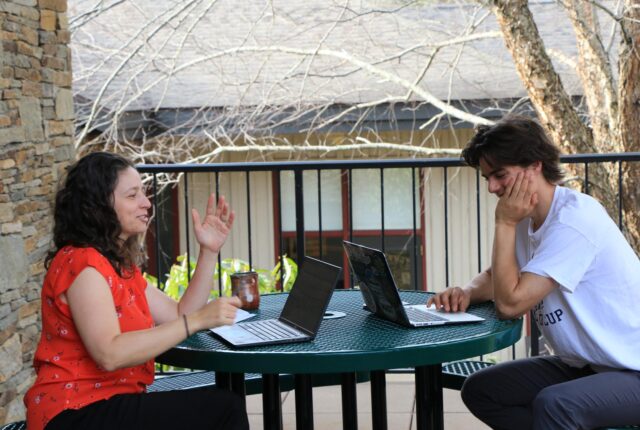What We’re About
On the Biology and Environmental Studies Assistant Crew (BIO/ENS) you have the opportunity to work with the department in various ways! Depending on the section of the crew you join you can complete fieldwork, tutor your peers, build and maintain collections, set up and break down labs, maintain equipment, assist faculty, maintain the greenhouses, and so much more!
This crew is made up of a plethora of sub-crews including:
- Greenhouse
- Herbarium
- Teaching Assistant
- Conservation Biology
- Biology Tutor



